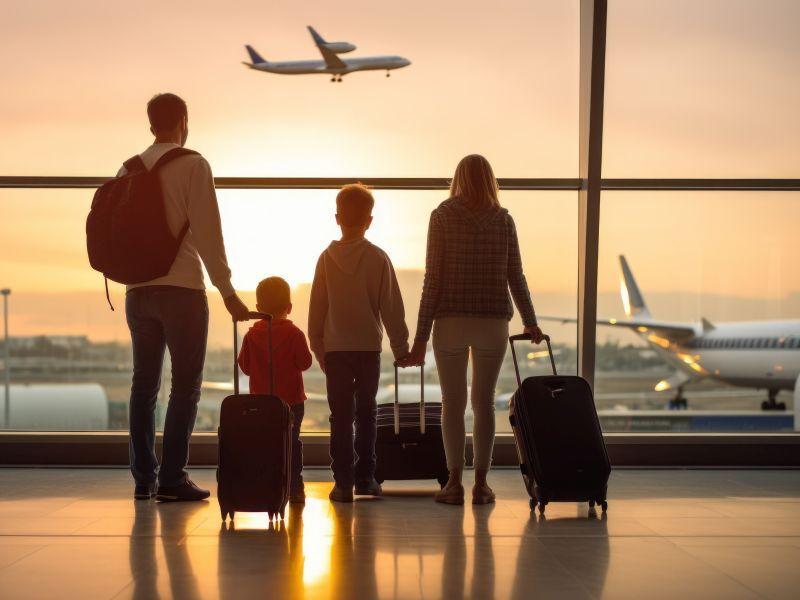This page has been automatically translated. Please refer to the page in French if needed.
Living abroad
"Expatriate - instructions for use": prepare your departure or your return to France as well as possible
Publié le 27 février 2024 - Directorate for Legal and Administrative Information (Prime Minister)
14e “Expatrier - mode d'emploi” will take place on March 6, 2024 (from 9:00 a.m. to 6:00 p.m.) at the Cité Internationale Universitaire de Paris (17 boulevard Jourdan). On this occasion, Aurore Daux (from the French Directorate Abroad and the Consular Administration of the Ministry of Europe and Foreign Affairs, co-organizer of this fair), answered questions from Service-Public.fr on the steps to be taken to prepare effectively for expatriation or return to France.

What are the key issues for people who want to leave the country? Where to start?
Once my expatriation project is correctly defined (choice of place, reasons for departure, departure alone, in couple or family...), it is of course necessary to ensure that my travel document is still valid (passport or national identity card) and to check the right to the local stay (the type of visa I need depending on my situation). It is also necessary to check that I have social security and repatriation insurance. Before I leave, I will make sure to notify the taxes, the FCA and/or the pension fund in particular.
To avoid any disappointment, before I leave, I make sure to find out about the living conditions there. One way I can do that is to consult with Travel advice from the Ministry of Europe and Foreign Affairs which will allow me to get all the information on the security risks and health conditions in the country. I also consult the Institut Pasteur website to know the recommended vaccinations before departure.
When I settle in the country, I complete local residency and register online at the Register of French outside France to my consulate.
The consulates are there to support French nationals in any action they may have to take abroad. Whether it is for civil status documents (a birth abroad for example), everyday life documents (issuing passports or identity cards, elections...), or for social support or consular protection, users can turn to the consular administration.
After a long expatriation, when you go back to France, what are the steps to take imperatively?
The return to France after an expatriation is anticipated. Ideally, it will even have been thought through abroad from the start. When I return:
- I take all steps to open up the right to health insurance, and to unemployment insurance if I am entitled to it;
- I report my return to the tax administration;
- i register to vote in my municipality;
- if necessary I enroll my children in a school in France, etc.
Can you tell us what France Travail is doing on the subject of expatriation?
France Travail operates on 3 levels:
- First of all, France Travail has seven international mobility teams, accompanying job seekers wishing to go abroad to work. As such, France Travail is part of the EURES (EURopean Employment Services) network, which is celebrating its 30th anniversary this year and which aims to facilitate the movement of workers in Europe by facilitating occupational mobility.
- France Travail Services also helps applicants for international mobility with unemployment insurance (whether to retain their unemployment rights if you go to work in Europe, or to ensure that they are open after a return from the foreigner).
- Finally, France Travail also helps French nationals who wish to prepare for their return to France (vocational training in France, advice on finding a job).
What is the program of the Salon “Expatriate - instructions for use”?
Admission to the “Expatriate - user manual” is free and free, upon registration. During this event, you will be able to attend various conferences with the theme:
- prepare for retirement while working or living abroad;
- social protection (covered and serene);
- expatriate as a family.
You can also get personalized advice from professionals by navigating between 4 poles:
- a “legal and fiscal” center, including representatives of the Directorate of Non-Resident Taxation and Notaries;
- a “social” center, with the presence of the Center for European and International Social Security Liaison (CLEISS), the Pension Insurance, the Health Insurance, the Caisse des Français à l’Aforeigner (CFE) and also France Travail;
- an “education” hub, with the Agence de l’Enseignement Français à l’Etrangement (AEFE) and the Center National d’Enseignement à Distance (CNED);
- a "destination" hub, with the Ministry of Europe and Foreign Affairs, the Embassy of Canada and the Dégie Générale du Québec.
Additional topics
Agenda
Apprentissage
Jusqu'au 17 mai 2024
Publié le 03 mai 2024
Impôts
À partir du 11 avr. 2024
Publié le 11 avril 2024
Prévention Covid-19
À partir du 15 avr. 2024
Publié le 18 mars 2024
Calendrier scolaire
Du 6 avr. au 12 mai 2024
Publié le 15 mars 2024

